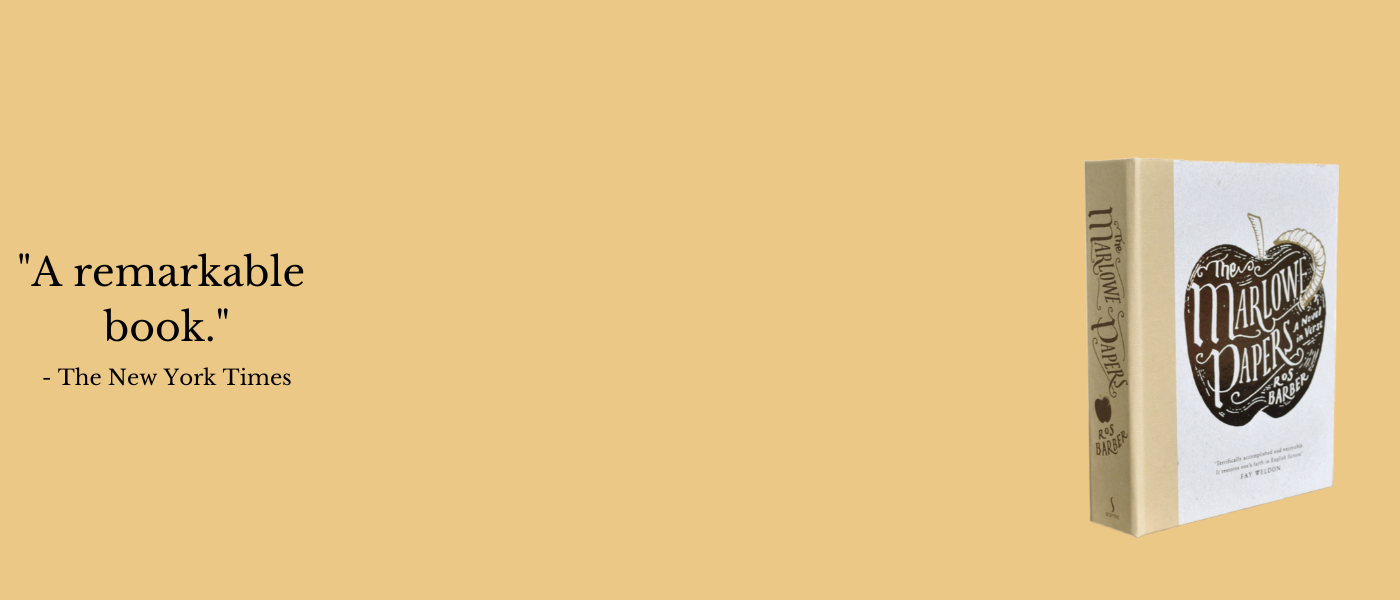 I returned to my old home town of Colchester recently to give a talk at one of my old schools, and was asked by a young poet there how to get published. Specifically,
I returned to my old home town of Colchester recently to give a talk at one of my old schools, and was asked by a young poet there how to get published. Specifically,
- which are the best magazines or journals to submit to when you want to get published?
and
- is there any way of getting past the shredder other than the poems themselves being very good?
So I thought I’d lay out a few useful pointers for young poets looking to make their way in the world.
Get published
You usually need to build up a bit of a reputation by getting poems published in magazines and poetry journals. In the UK (I don’t know anything about the US scene, really) the places with the most kudos are the TLS, the LRB and Poetry Review. Probably not the places to start when you are still in your teens, but I would never rule anything out. Very respectable ‘middle tier’ publications are Magma, The Rialto, The North, Poetry London, London Magazine, Ambit. Smaller publications come and go. I had some early success with Orbis and my friend Catherine Smith almost lived at Smith’s Knoll, but I gather that has recently folded. The Frogmore Papers is still with us, and Equinox. There are dozens of small poetry magazines you can submit to, and you can find a complete list at The Poetry Library’s website.
This is the best resource I can point to, and as well at containing a comprehensive list of ‘live’ magazines, with links to their websites, contains much of the advice which I would give anyone wanting to submit work to poetry magazines. Firstly,
Read as many magazines as you can
If you’re young, you probably don’t have the money to buy them. I would still say one of the best ways to do your research is to spend a day in London at the Poetry Library (Level 5 of the Royal Festival Hall). Which magazines contain poetry you enjoy? Editors have different tastes, and their tastes are reflected in the kind of poetry they publish. If they publish the kind of poems you enjoy, they might enjoy yours. So make a note of those publications; they are your targets. If you can’t easily get to the Poetry Library, we have this wonderful internet thing nowadays. Use the Poetry Library magazines list to visit the websites of magazines – they often have samples of their latest edition online, and you will be able to get a feel for the kind of poetry they favour.
Batch up your poems
The usual advice is to send a batch of 4-6 poems. Do this. Don’t send less (the editor needs to get a flavour of your work) and don’t send more. Put your very best poems at the back of the pile, so the editor can warm up to your voice before getting to the good stuff. If you have a lot of poems, make up several batches and send them out to different places. When they come back (and believe me, on the whole, they will), you can send them out somewhere else.
Etiquette
Alway enclose a polite covering letter and a stamped self-addressed envelope with your submission, unless the magazine specifies that they accept e-submissions. If you don’t enclose a self-addressed envelope with correct postage, you’ll probably not hear from them again – editors find this very irritating, and it’s usually considered a ‘straight in the bin’ offence. Do not multi-submit – a poem should only be with one editor at any time. No editor wants to waste their time accepting a poem only to find it has been taken elsewhere.
Keep records
It’s essential, therefore, to keep records, so you know which poems are currently under consideration at which magazines. It’s also helpful to keep a note of when you sent them, so you can work it an appropriate time to prod them for a response when you don’t hear (be prepared to wait for up to three months before you do this). You can set up a spreadsheet with poem title, where it’s currently under consideration, when it was sent, and previous magazines that have returned it (so you don’t resubmit by accident). I used to have no less than thirty poems out at any time, and arranged the spreadsheet so that all those in a single batch showed up as a single colour. When a batch came back (sometimes with one or two poems missing because they had been accepted I would re-batch them (sometimes with new poems) and send them straight out again.
Attitude
Keeping a positive attitude is essential. Try not to think of your returned poems as being ‘rejected’ – they are simply returned. It doesn’t mean they are no good – it may be they just didn’t chime with that particular editor’s tastes, or that he had already accepted a poem on a similar subject (even though he liked yours), or that he had just run out of room this issue. For many years I had, in large letters on my noticeboard, a quote from Winston Churchill, which I would make sure I would stare at and digest whenever I opened one of those stamped addressed envelopes:
Success is the ability to go from failure to failure without losing enthusiasm
Remember this, for it will serve you well.
Competitions
Don’t forget competitions. They’re a great way of getting noticed, plus there is often some very welcome prize money. If you are under eighteen, enter the Foyles Young Poets of the Year Award. If you’re under 30, you also want to think about going for an Eric Gregory Award. In both cases, you should plan on entering every year until you’re too old to be eligible. Not only will your work be developing and improving, but judges (and their tastes) change from year to year, so just because you didn’t get through one year doesn’t mean you won’t succeed the next. I regret only entering the Eric Gregory once (and the Foyles competition didn’t exist) but I did manage to get commended three times in the National Poetry Competition, as well as winning prizes in several smaller competitions. I used to have another spreadsheet with details of upcoming competitions throughout the year, listed in order of closing date. Read and follow competition rules carefully: many specify the entered poems must be unpublished and not submitted elsewhere, so you you’ll need to set aside (from your batches) poems you are planning to enter. Again, the UK Poetry Library is the best source of information, and hosts a comprehensive list of competitions.
Lastly, if you’re a young poet based in the UK, why not join the Young Poets Network?
Keep reading, keep writing, and keep faith – if you have a basic talent, and you apply yourself, and you are persistent, you will get published!

